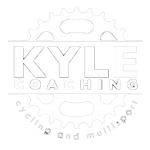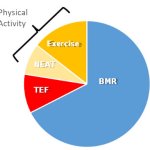Coach: Is hiring a coach a good decision?

The end of the road racing season provides an opportunity for reflection. Regardless of the degree of success this season, we always want more. From faster TT times to causing pain in the peloton, we start thinking about 2016 and what we should do differently. For many, one question is whether to hire a coach.
The average racer will buy a $1500 wheelset with the promise of gaining speed without much hesitation. The decision on whether to hire a coach can take the athlete months of internal deliberation. At a local time trial, I overheard a few cyclists somewhat bragging that they had bought a new Shiv and Zipp front 808 and rear disc to try and shave seconds off of the TT time.
After the race, I was curious to see what they had “bought” as far as time goes. They had successfully gained 20 seconds on their last effort, so it moved them from 9th to 8th place. Without knowing much about the athlete, but looking at their size and knowing the course, without a doubt a properly executed training plan could have easily shaved off far more than 20 seconds. If we define the return on investment for the cyclist, hiring a coach may yield a greater value than equipment.
A few years ago, while leading a discussion about the importance of an annual training plan, someone asked me who I had as a coach. A quote from Sir William Osler came to mind, “A physician who treats himself has a fool for a patient.” Within a few weeks, I too asked myself, should I hire a coach? I had made all the investments a cyclist could make, except one. I am no fool.
Once you decide to hire a coach, you should have a good understanding of what to expect. I use the term “hire” because you are paying the coach for their time and expertise. Reflect on the number of hours you expect the coach to spend on you on a weekly basis. Then extrapolate that to the full four-week phase or month. Divide the cost by the hours and ask yourself is it a good deal? Am I paying too much? Or the proverbial, you get what you pay for.
There are tons of books on the shelves that have basic training plans. You can buy some of our training plans on our website at a very reasonable rate. These plans are quite popular and are an excellent starting point for someone new to racing and training. However, the static training plan cannot take into account your fitness background, currently abilities, time restraints, illness, injury or other disruptions. A coach considers all these variables when developing your personalized training plan.
Stock book plans and downloaded plans are what we consider a “fire and forget” plan. The athlete just takes the plan and executes. When challenges to your training schedule or uncertainty about the best way to complete the workout arise, the athlete does not have any resources to assist. A coach not only provides objective feedback on training progression but also adjusts the training plan keep the athlete on track. Your coach will help you set goals and set up your season – from training to the race calendar – to increase the probability of success.
As you make your next racing year resolutions, commit to success and efficient training. Hire a coach!


 g, and becoming fit.
g, and becoming fit.



